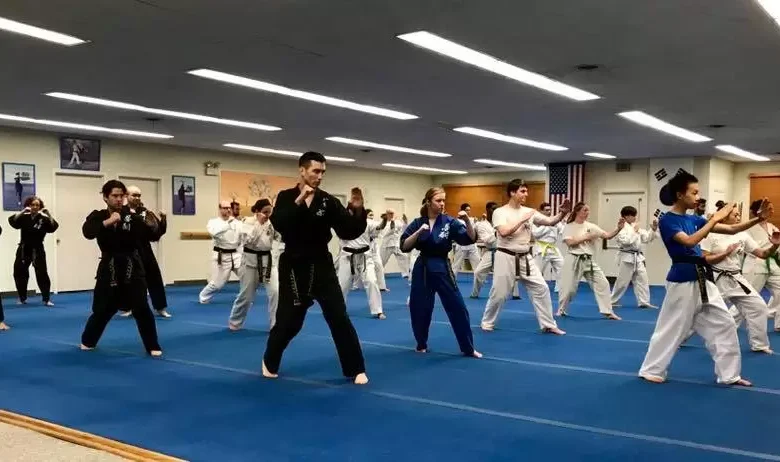7 Reasons for Everyone to Study Martial Arts
7 Reasons for Everyone to Study Martial Arts

In a world that often feels chaotic and unpredictable, finding a sanctuary for both physical and mental well-being is crucial. One such sanctuary that has been embraced by people across cultures and ages is the realm of martial arts.
It’s not just about learning how to throw a punch or execute a perfect kick; it’s a holistic journey that can positively impact various facets of our lives. Let’s explore the seven compelling reasons why everyone should consider studying martial arts.
Self-Defense: A Practical Life Skill
In an era where personal safety is a paramount concern, acquiring self-defense skills is a wise investment. Martial arts empower individuals to defend themselves effectively, instilling a sense of confidence and security.
Through disciplined training, one learns to be aware of their surroundings, make quick decisions, and react appropriately in potentially dangerous situations.
Physical Fitness and Stamina
In a world plagued by sedentary lifestyles, martial arts offer a dynamic and engaging way to stay fit. Whether it’s the explosive movements in kickboxing or the fluidity of Brazilian Jiu-Jitsu, these disciplines not only build strength and endurance but also enhance flexibility, balance, and coordination.
Forget the monotony of traditional workouts; martial arts classes inject excitement into your fitness routine.
Mental Discipline and Focus
The journey through martial arts transcends the physical realm, delving into the development of mental discipline. Regular practice hones concentration, patience, and perseverance.
From mastering intricate techniques to navigating complex sparring scenarios, martial artists learn to stay focused under pressure—a skill that extends beyond the training mat into everyday life.
Stress Relief and Emotional Well-being
Life’s challenges can take a toll on our mental health, and this is where martial arts become a therapeutic outlet.
The rhythmic, controlled movements in disciplines like Tai Chi or the intense physical exertion in kickboxing release endorphins, reducing stress and promoting a sense of well-being. The meditative aspects of provide a sanctuary for emotional balance and introspection.
Cultivating Respect and Discipline
are not just about physical prowess; they are deeply rooted in respect and discipline. Traditional martial arts emphasize the importance of courtesy, humility, and adherence to a code of ethics.
As practitioners progress, they learn to respect their opponents, instructors, and, most importantly, themselves. These values naturally extend beyond the dojo and into everyday interactions.
Building Confidence and Self-Esteem
The journey of mastering martial arts is as internal as it is external. Overcoming challenges and pushing personal boundaries fosters a profound sense of accomplishment. As skills develop and belts are earned, individuals experience a boost in self-esteem and confidence.
This newfound self-assurance carries into various aspects of life, from professional endeavors to personal relationships.
Community and Lifelong Friendships
Martial arts classes aren’t just places to learn; they are communities where like-minded individuals come together to pursue a shared passion. The camaraderie formed in these environments creates lasting friendships and support networks.
The journey of self-discovery becomes more enjoyable when shared with others who understand the challenges and triumphs of the path.
Conclusion:
Embarking on a martial arts journey is not just about learning to fight; it’s about embracing a transformative lifestyle. From the practicality of self-defense to the holistic benefits of physical and mental well-being, martial arts offer a path to personal growth and resilience.
So, why not step onto the mat, tie on that belt, and explore the incredible world that have to offer? Your journey awaits.
Studying martial arts offers numerous benefits for people of all ages and backgrounds. Firstly, it improves physical fitness, strength, flexibility, and coordination through rigorous training. Secondly, instill discipline, focus, and self-control, promoting mental well-being and stress management. Thirdly, practitioners develop confidence and self-esteem as they progress in their skills and overcome challenges.




